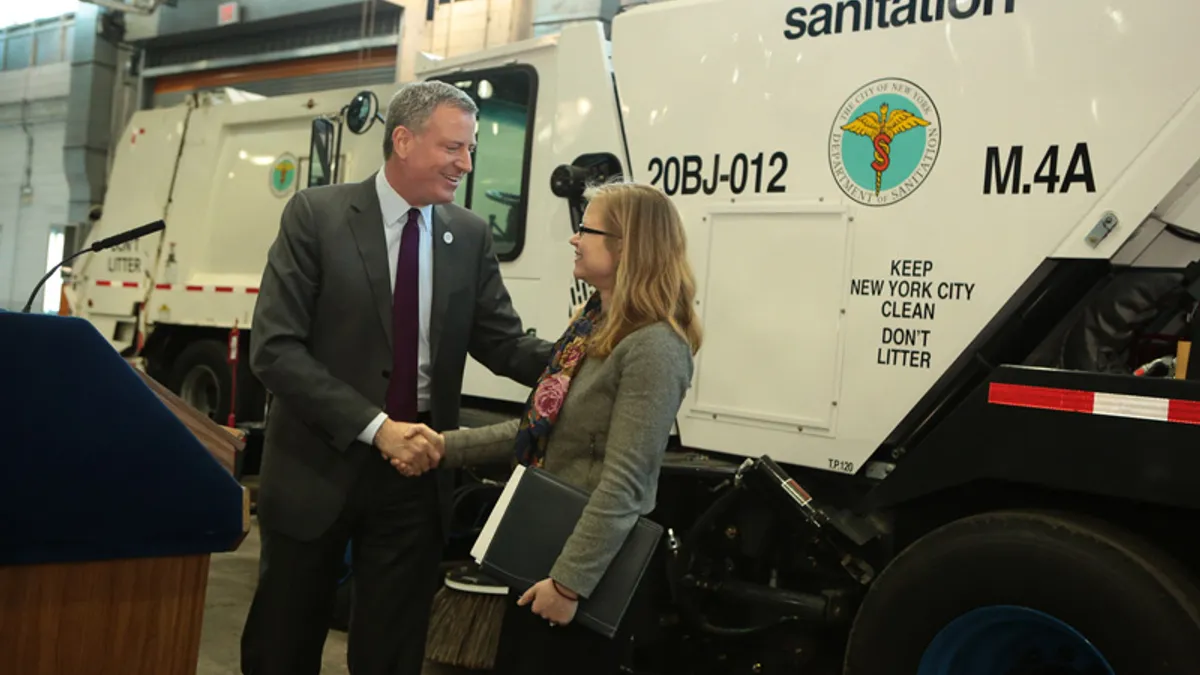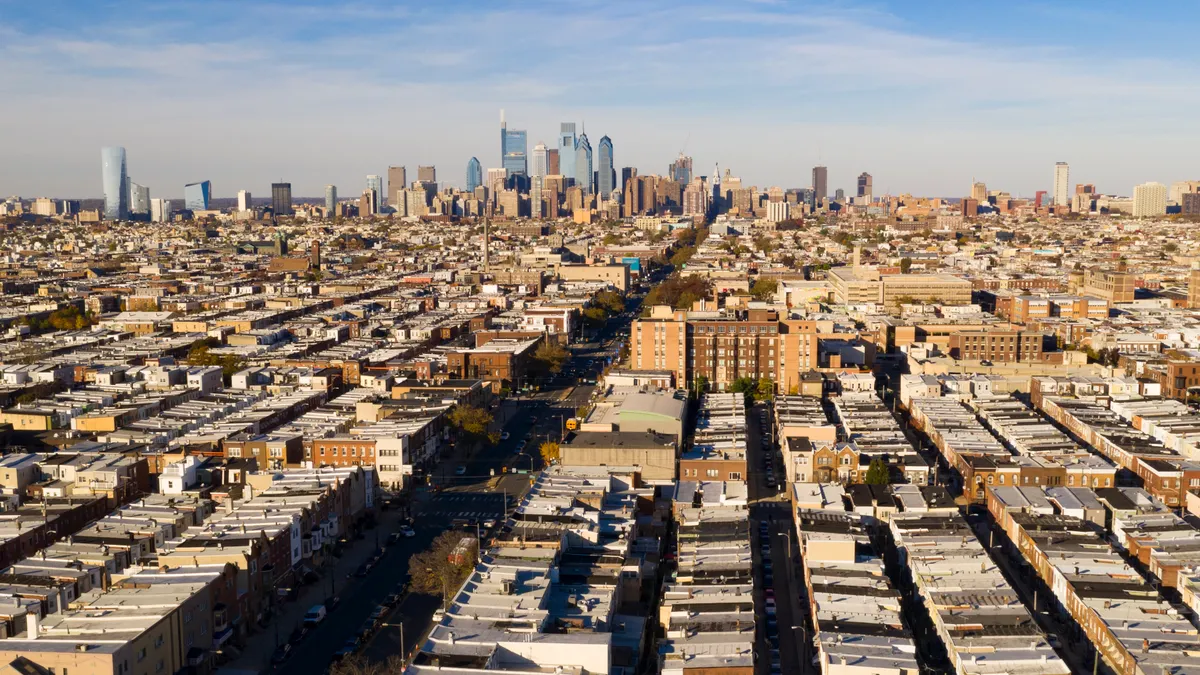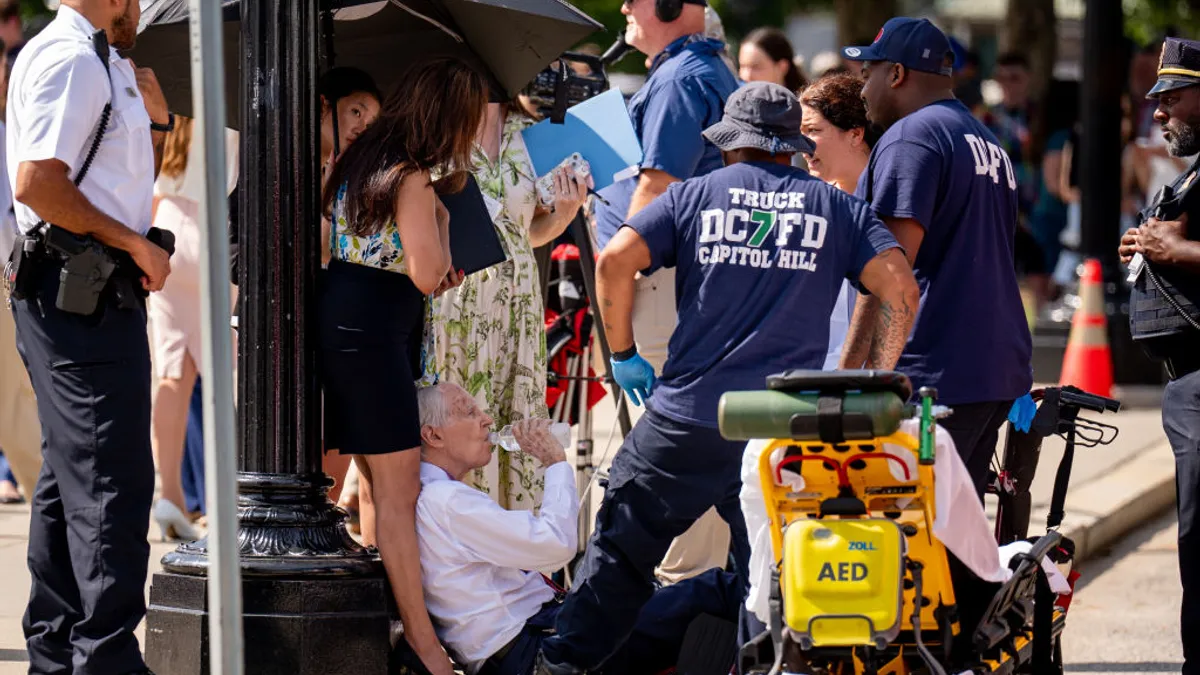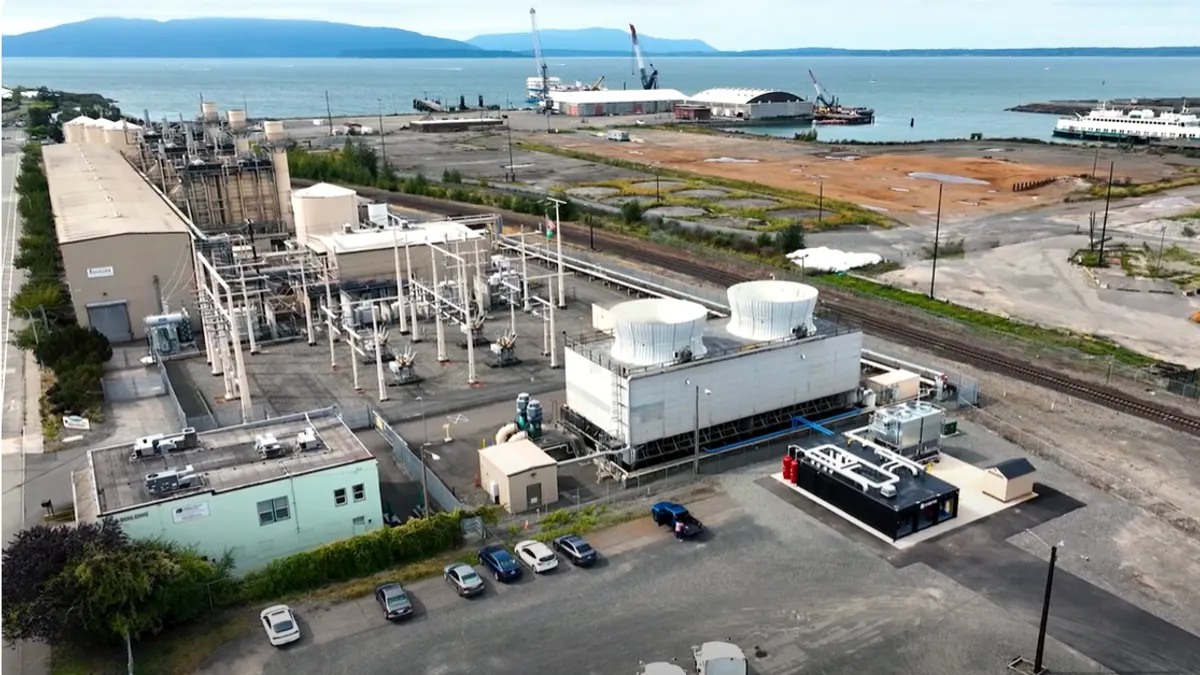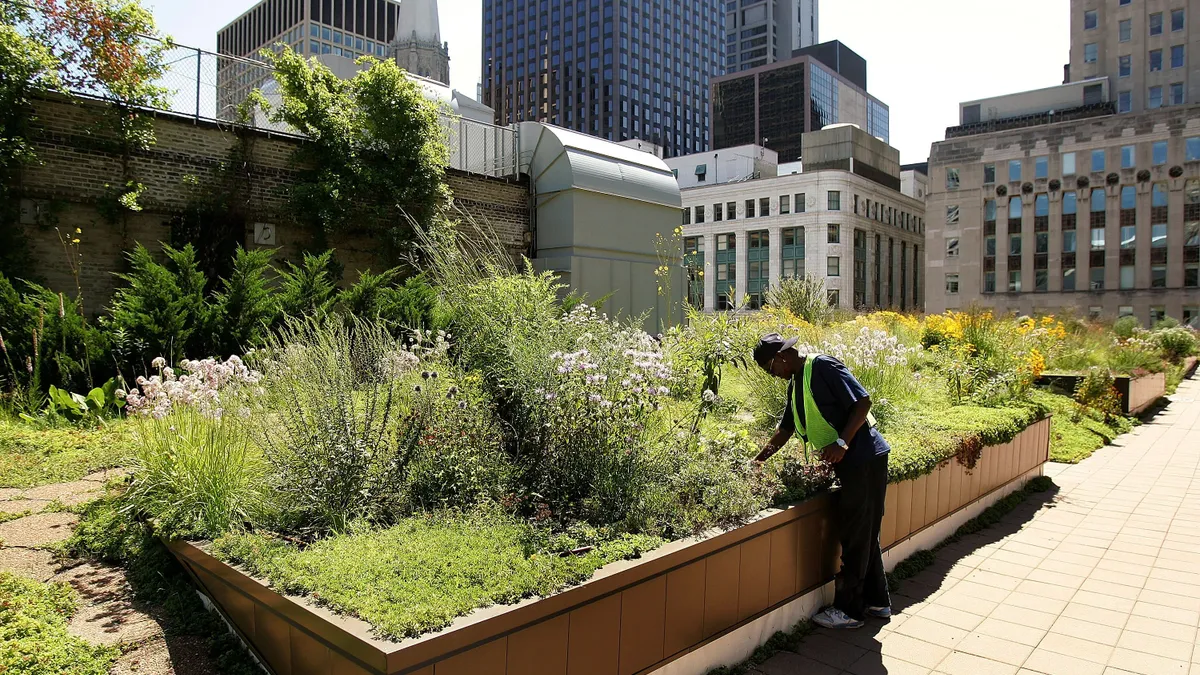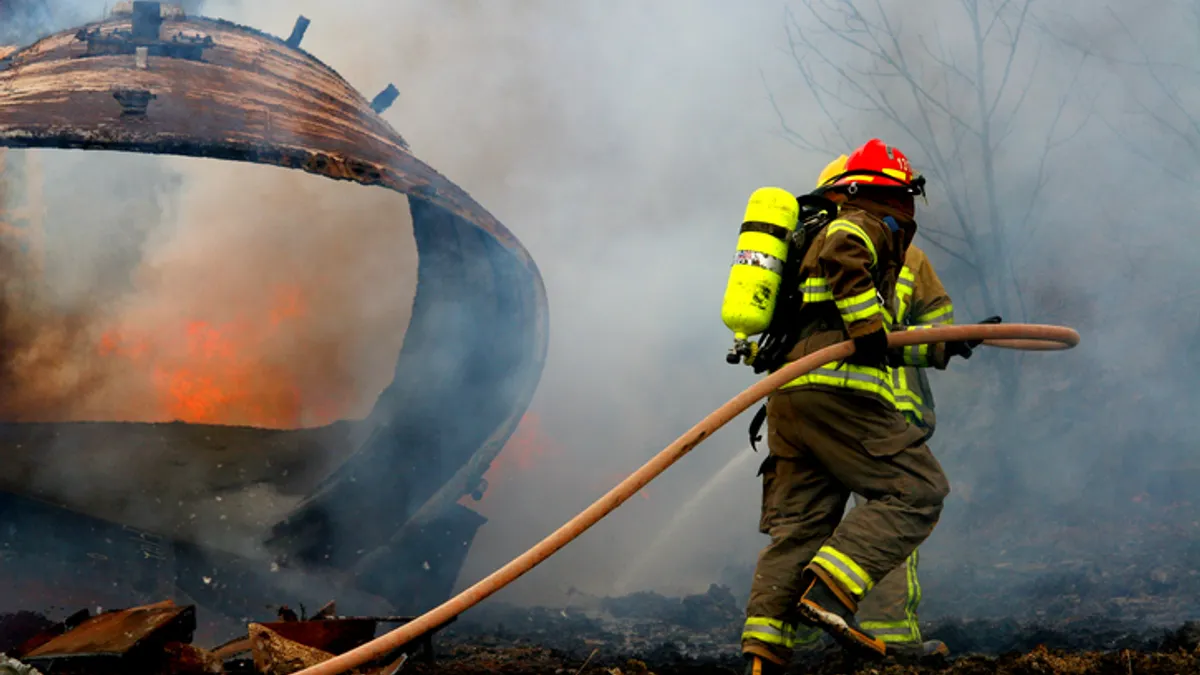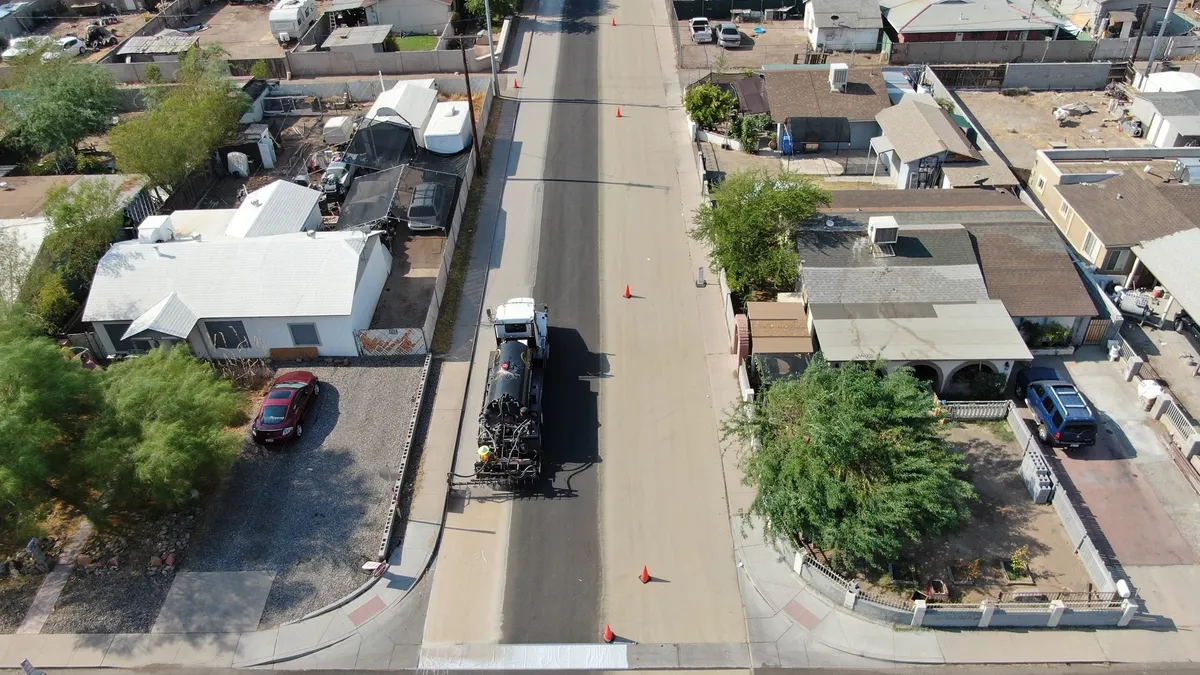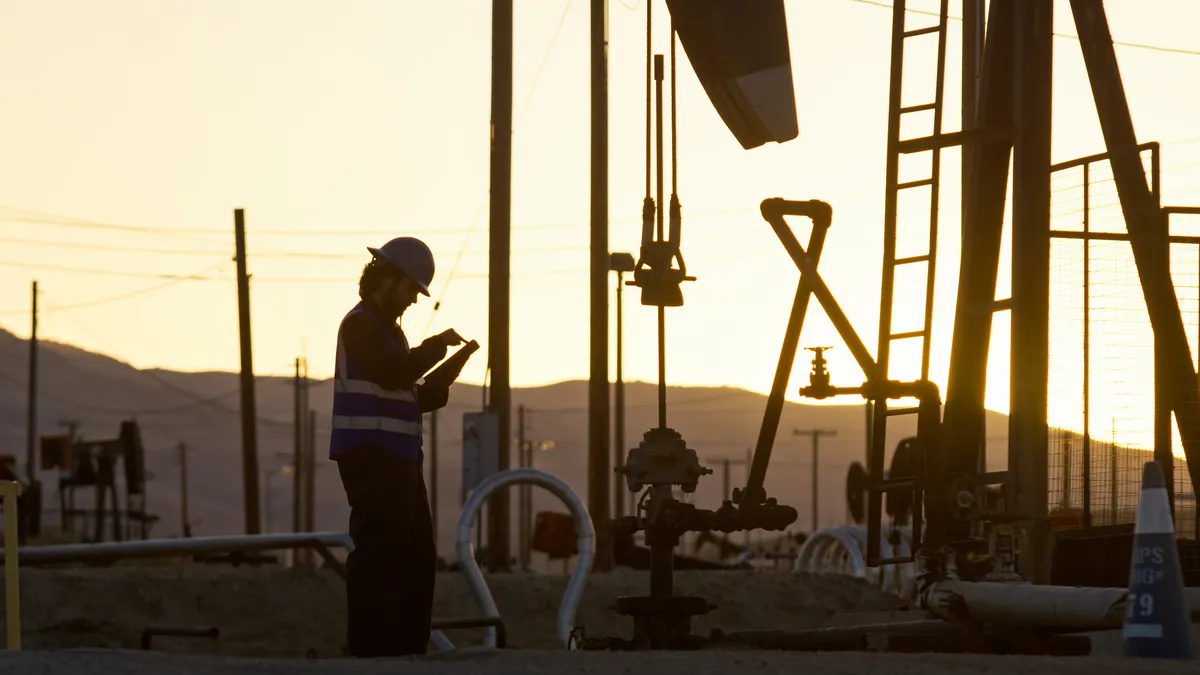New York Department of Sanitation Commissioner Kathryn Garcia is stepping down as the city continues to work through many pandemic challenges at a potential inflection point in its waste history.
Since being appointed to run the nation's largest sanitation department (DSNY) in March 2014, managing approximately 10,000 employees, Garcia said she has worked to ensure "a lot of pieces of different puzzles really came together" for city waste infrastructure. This included overseeing the construction of delayed marine transfer stations, signing major disposal contracts, supporting the passage of long-debated legislation, making internal systems paperless, launching a procurement program to support businesses owned by people of color and women, and more.
But she has also seen setbacks in her tenure, with progress toward a 2030 "zero waste" goal hard to achieve in recent years and what was once the nation's largest curbside organics collection program frozen amid $106 million in budget cuts. A major plan to reshape the city's commercial waste sector has also been delayed multiple times due to the pandemic's economic disruptions. Now, the threat of even more cuts is looming in the months ahead.
Garcia tendered her resignation to term-limited Mayor Bill de Blasio last week, calling cuts and layoffs at the agency so far "unconscionable," according to multiple reports. Now, she may run for mayor in 2021 and would draw on a long resume at multiple city agencies, beginning with her days as a DSNY intern. Waste Dive recently spoke with the commissioner ahead of her final week on the job.
The following interview has been edited for brevity.
WASTE DIVE: It's been a tough year for the workforce with COVID, workers have gotten sick and unfortunately some have died. Now we have the budget cuts. How would you describe morale at the agency these days?
KATHRYN GARCIA: Actually, morale has been hanging in there I would say. I've been out at roll calls and I think they're proud of the work that they've done so far during the pandemic and realize how important it has been to the city as we try and recover from at least the height of the pandemic. I'm obviously always cautiously optimistic that we can keep our infection rate low. So I would actually say that morale remains pretty high.
What's the best way to think about your resignation? Is it in direct reaction to the budget cuts or is it more that was a factor, but you also were just looking to move on anyway?
GARCIA: So I would say it is both. The budget cuts that we've already taken were very significant. The ones that are proposed are devastating, not only for all of the workers who have done such a tremendous job through the entire pandemic, but also for city residents.
As you know, those of us in the waste business think that it's pretty important to make sure we're getting the garbage and the recycling and keeping things clean. And that has become more and more challenging in the face of the choices that got made about what the priorities were. But it is also a time where I have said I'm actively thinking about running for mayor.
Do you have a sense that the budget situation could and should be handled differently when it comes to sanitation? Is that part of your concern?
GARCIA: Yes, I absolutely think that sanitation and other first responders should be the last place you'd go with the budget knife. It impacts every New Yorker every day, our ability to go out and collect waste. It's immediate. The one thing that is definitely true is you can cut our budget, but people don't stop producing waste. If they stopped producing waste then yes, you should cut my budget. But they don't stop. So the need for the services is probably as important as it's ever been.
So what do you feel like is the disconnect there, do you think the administration does not share that view or is not willing to cut other things first? What's the better approach?
GARCIA: I'm not going to characterize their decisions in terms of what they've done so far. I just think that there must have been other ways that this could have been handled and I'll leave it at that.
You've talked before about having some hope that other sources of government funding could be coming, but that's not expected at this point. Where do you see this all going after you leave?
GARCIA: There's a lot of uncertainty. Clearly, City Hall would like borrowing authority from the state. That will require the passage of legislation. Obviously, any time you're talking about passing legislation that's not a slam dunk. It seems pretty clear at this point that in the short term the federal government is not planning to do any support for state or local governments. And so we could end up in a situation where many employees could get laid off.
And in terms of thinking of the brunt of that for sanitation, the number of layoffs that they've said is 22,000 [citywide]; 1,000 would be sanitation. We're not actually that big, that's a disproportionate share of the workforce ... It would be a significant number of sanitation workers.
What's the best way to describe the latest implementation timing and the framework for commercial waste zones? I've noticed there hasn't been any recent rulemaking and I'm hearing the RFP may get moved again into next year. Is that accurate?
GARCIA: We were still trying to stay on track for November, but the challenge we're having is the industry is in such bad shape at the moment because they saw their volume of waste fall 70-90%, depending on the private carter. Being able to price out what these districts or zones will look like is very hard at the moment until we end up in sort of a more new normal. And so we've been working with all of the advocates and the industry to make sure that everyone's on the same page about the timing. It isn't resolved yet and we clearly want to make sure we do it as soon as possible, but right at the moment the private sector is still just really not fully back by any stretch of the imagination.
It seems like it's one of the hardest hit commercial waste markets in the country.
GARCIA: It was astonishing to me how quick the plunge was on the tonnage that they were collecting. It was like one day they were getting what would be the equivalent of 3 million tons annually and the next day they were almost getting zero. It's coming back, as things open up it is coming back, but it's very hard to predict when it will be back more broadly.
So it's maybe November at the earliest, but that doesn't sound all that viable now?
GARCIA: Yeah, it is I would say likely to get delayed. I'm optimistic, but it's still likely to get delayed because I don't see things moving in the economy that quickly.
So it sounds like one factor is just the timing. As far as design of the system itself, do you foresee that possibly needing to be adjusted?
GARCIA: No, I don't anticipate that the sort of basic structure that was created in the legislation would need to change. But, for example, if you're bidding on a 10-year contract and [say] you want to bid Midtown. Usually there's 100 tons of waste in that zone every day and that's been a stable number for 20 years. But suddenly it was 100, then it was almost zero. Now it might be 20. When will it be 30, 40, 50, and back to 100? That's going to change how you prepare your financials.
So delays are likely, but fair to say the city remains committed to seeing this through?
GARCIA: Absolutely, and we're legally required to.
Is zero waste by 2030 still theoretically attainable at this point?
GARCIA: It would be very tough to make that year given where we are, without having organics curbside collection. So I would say that is slipping away from us very quickly. There needs to be a much more substantial commitment to organics collection – and to universal organics collection – in order also to meet not only our waste goals, but our climate change goals.
Pre-COVID there was also talk of how organics alone might not be enough. A local save-as-you-throw policy and a state extended producer responsibility bill that DSNY supported were getting some talk. Are there other large items like that you think would also still need to fall into place soon?
GARCIA: Yes. And I think that definitely extended producer responsibility is something that would begin to take the most challenging products out of the waste stream, and actually enforcing the plastic bag bill would also be helpful. And I think that we would have been in a place where we could have really jumped off of where we are in recycling, and if we'd had organics [collection] up and running ... But now I think that has to be the first priority.
In thinking about whoever is in City Hall next, perhaps yourself, if the budget can be stabilized enough to allow for more near-term planning what does the next administration need to do to drive more tangible progress on waste reduction? Is it just finding a way to fund organics, or are there other bigger picture things you think that need to happen?
GARCIA: Organics is the thing that will take us the vast majority of the way. Thinking about how to start to get at the other little slivers, whether or not that's around construction debris from residential ... and how to begin to get that piece of it recycled. Also how to incentivize some of our recycling markets, particularly for things like glass and even for compost. I love that Pennsylvania uses a lot of compost for what otherwise would be plastic silt fencing.
I don't know of any other sanitation commissioner that's become mayor. Is there anything about the experience you think would cause you to handle that differently in the leadership role, in terms of how you view this or how you strategize?
GARCIA: Yeah, I don't believe that there has ever been a sanitation commissioner who has become mayor. I think that it's not only the sanitation experience, but also the experience [at the Department of Environmental Protection and the New York City Housing Authority] and even long, long ago at the Department of Finance. Which means a real understanding about how agencies work and what they're capable of standing up. And how quickly, and how do you achieve goals. And where are your flanks, and what's the financial implication of those, and how do you work?
You can make the best plan ever, but you've got to work with the people who are on the front lines to ensure that it gets executed. That's a lot of engagement that I think is important because when you get buy-in you find that things just move so much more smoothly.
Is there anything else to highlight from your tenure that other cities might want to emulate?
GARCIA: Most other agencies don't have the snow function, but really rethinking that and being able to handle the largest blizzard in the history of the city without ever closing schools was pretty amazing.
When we sent folks to help Puerto Rico after Hurricane Maria, opening the four marine transfer stations, doing a lot here around technology and how that fits into the waste industry. Having some fun, actually sanitation departments can have some fun. We did the Food Waste Fair and the ReFashion shows.
And then the two big pieces of legislation, the commercial waste zone legislation as well as the waste equity laws... two really landmark pieces of legislation in the city. And very progressive in terms of reducing either traffic, which is again the big piece for waste zones, or the burden on environmental justice neighborhoods.



